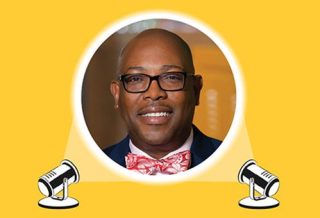FOCUS
Learn to listen
By Nicora Placa
Categories: Continuous improvement, Facilitation, Learning designsFebruary 2020
Vol 41, No. 1
Read the remaining content with membership access. Join or log in below to continue.
Sed ut perspiciatis unde omnis iste natus error sit voluptatem accusantium doloremque laudantium, totam rem aperiam, eaque ipsa quae ab illo inventore veritatis et quasi architecto beatae vitae dicta sunt explicabo. Nemo enim ipsam voluptatem quia voluptas sit aspernatur aut odit aut fugit, sed quia consequuntur magni dolores eos qui ratione voluptatem sequi nesciunt. Neque porro quisquam est, qui dolorem ipsum quia dolor sit amet, consectetur, adipisci velit, sed quia non numquam eius modi tempora incidunt ut labore et dolore magnam aliquam quaerat voluptatem.
HELPFUL INTERVIEW QUESTIONS AND PROMPTS
- How do you know?
- How did you figure that out?
- Why did you … (e.g. write that, draw that)? How did that help you?
- I noticed that you stopped what you were doing just now/crossed something out. What were you thinking there?
- Why did you change your mind/answer?
- I don’t know what you mean by that. Will you show me with a picture/with the manipulatives in front of you?
- Can you tell me what ________ means?
COMMENTS AND QUESTIONS TO AVOID
- That’s right!
- Good job!
- What if you …?
- You know that if you just …
- Remember what we did in class last week …
- Oh, I see what you did. You …
- Do you mean …?
COMMON MISTAKES
Here are common mistakes that keep educators from listening to students:
- Listening only for the right answer.
- Listening only for a particular solution path.
- Thinking about the next instructional move instead of listening to the student.
- Assuming that students are thinking the same way we are thinking.
- Not listening for what students know.
- Not listening for the informal knowledge students bring to the problem.
- Not trying to make sense of what students are doing
References
Carpenter, T.P. & Fennema, E. (1992). Cognitively guided instruction: Building on the knowledge of students and teachers. International Journal of Educational Research, 17(5), 457-470.
DuFour, R. & Eaker, R. (2009). Professional learning communities at work: Best practices for enhancing students achievement. Bloomington, IN: Solution Tree Press.
Fennema, E., Carpenter, T.P., Franke, M.L., Levi, L., Jacobs, V.R., & Empson, S.B. (1996). A longitudinal study of learning to use children’s thinking in mathematics instruction. Journal for Research in Mathematics Education, 27(4), 403-434.
Franke, M.L., Carpenter, T.P., Levi, L., & Fennema, E. (2001). Capturing teachers’ generative change: A follow-up study of professional development in mathematics. American Educational Research Journal, 38(3), 653-689.
Schmoker, M. (2005). No turning back: The ironclad case for professional learning communities. In R. Dufour & R. Eaker, On common ground: The power of professional learning communities (pp. 135-153). Bloomington, IN: Solution Tree Press.
Categories: Continuous improvement, Facilitation, Learning designs
Recent Issues
EVALUATING PROFESSIONAL LEARNING
February 2024
How do you know your professional learning is working? This issue digs...
TAKING THE NEXT STEP
December 2023
Professional learning can open up new roles and challenges and help...
REACHING ALL LEARNERS
October 2023
Both special education and general education teachers need support to help...
THE TIME DILEMMA
August 2023
Prioritizing professional learning time is an investment in educators and...











